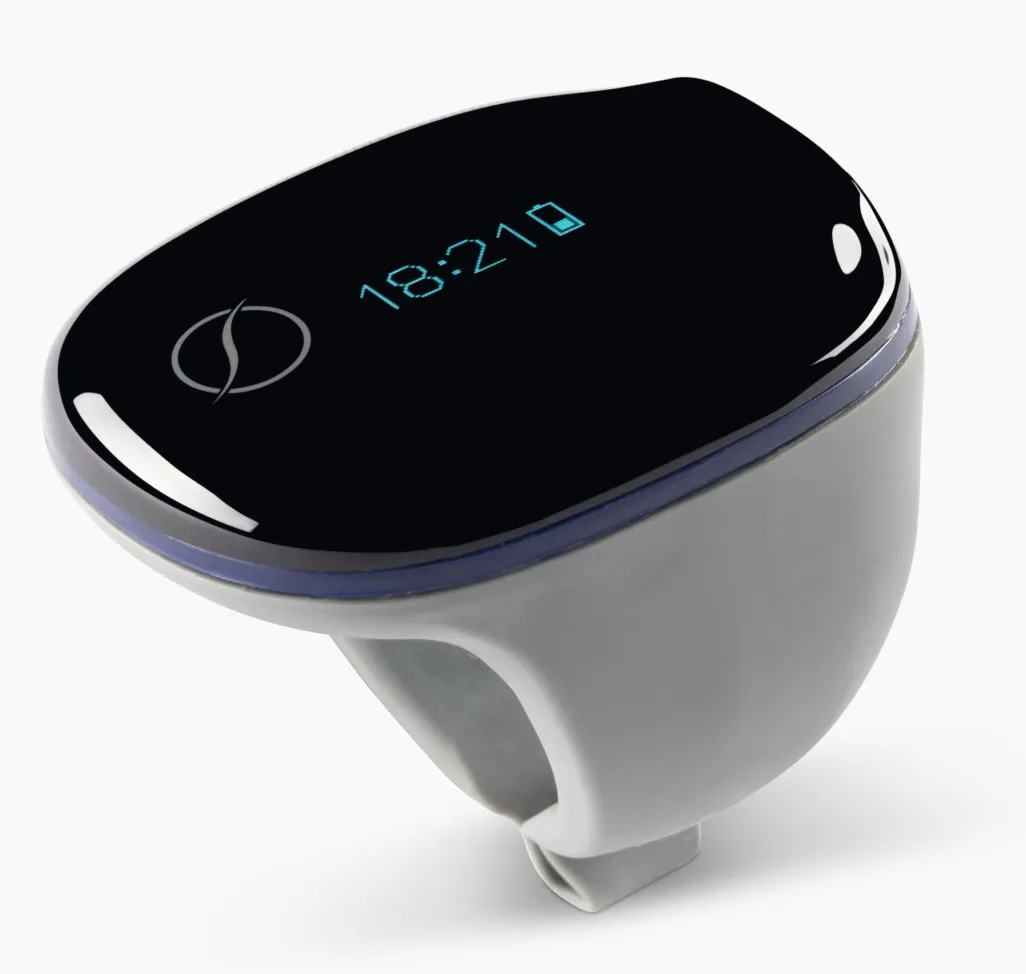XSISQ StudyAn Xcopri Study for Investigating Sleep Quality
Help your epilepsy patients monitor better sleep quality while impacting seizure control. Join this groundbreaking research study on bedtime dosing of cenobamate.
Investigating Sleep Quality
Investigate cenobamate's impact on objectively measured sleep parameters
Seizure Control
Assess improvement in seizure frequency with bedtime dosing
Non-Invasive Monitoring
Innovative SleepImage ring technology for at-home sleep assessment
Advanced Sleep Monitoring Technology

SleepImage Ring Technology
Non-Invasive Monitoring
Patients comfortably wear the ring during sleep with no disruption to their normal sleep routine.
Accurate Sleep Data
Utilizes photoplethysmography and cardiopulmonary coupling to precisely assess sleep quality.
Comprehensive Analysis
Detects stable and unstable NREM sleep, REM, wake periods, and sleep-disordered breathing.
Harvard-Developed
Created by Dr. Robert Thomas at Harvard University, and is an FDA and Health Canada approved medical device.
Meet Our Research Team
Led by renowned experts in neurology and sleep medicine, our collaborative research initiative brings together top institutions.

Dr. Ran Liu
MD, FRCPC, DABPN, CSCN (EEG), MSc
McMaster University, University of Toronto
Dr. Ran (Richard) Liu is a sleep neurologist with an interest in epilepsy, at the Sunnybrook Health Sciences Centre and Medsleep. He completed his neurology residency at Queen's University and Sleep Medicine fellowship at Harvard University. Dr. Liu helps teach the sleep medicine fellowship at the University of Toronto and McMaster University. His research interests include central disorders of hypersomnolence, sleep disordered breathing, insomnia, epilepsy and medical technology.

Dr. Marcus Ng
MD, FRCPC, CSCN (EEG)
University of Manitoba
Dr. Marcus Ng's research focuses on the anti-epileptic effect of rapid eye movement (REM) sleep against seizures, quantitative electroencephalography (EEG), chronobiology, and critical care electroencephalography (EEG). Dr. Ng is the Director of the Dreamspike Research Laboratory, which aims to study the unique anti-epileptic properties of REM sleep.
Is Your Patient Right for This Study?
Our research focuses on adult epilepsy patients who could benefit from cenobamate's potential sleep-impacting properties.
Who Can Participate
Patients newly prescribed cenobamate for focal epilepsy
Adults between 18-65 years old
Patients taking cenobamate at bedtime (qhs)
Low risk for sleep disorders (STOPBang <5, ILRS <16, ESS<10)
Patients not taking insomnia medications and no substance use issues
Patients with no medical/psychiatric conditions
Note: Patients with moderate/severe sleep apnea, narcolepsy, or other significant sleep disorders are not eligible for this study.
The Patient Experience
Initial Sleep Assessment
3-day sleep monitoring with SleepImage ring before starting cenobamate
Medication Titration
Standard cenobamate dosing schedule with bedtime administration
Follow-up Assessments
3-day sleep monitoring at 100mg and 200mg dose milestones
Throughout the study, patients will complete sleep diaries and questionnaires. The SleepImage ring provides non-invasive monitoring in the comfort of their home.
Research Contributions
Sleep Quality Data
Contributing to research on sleep patterns in epilepsy patients
Medication Timing
Exploring potential effects of bedtime dosing on treatment outcomes
Scientific Advancement
Adding to the scientific understanding of sleep-epilepsy interactions
Frequently Asked Questions
Get answers to common questions about the XSISQ study and cenobamate's potential sleep benefits.
Join This Groundbreaking Research
Be part of the study that could transform how we think about epilepsy treatment and sleep quality.



